




Professor Linda Tuhiwai Smith, PhD is a Māori Distinguished Professor at Te Whare Wānanga o Awanuiārangi and a leading figure in Indigenous education and research. She is renowned for her work on decolonizing methodologies, particularly through her influential book, Decolonizing Methodologies: Research and Indigenous Peoples. Born in Whakatāne, New Zealand, and affiliated with the Māori iwi Ngāti Awa and Ngāti Porou, Professor Smith has held prestigious roles, including Pro-Vice Chancellor Māori at the University of Waikato. She is a member of the Waitangi Tribunal and a Companion of the New Zealand Order of Merit for her services to Māori and education. Her work continues to inspire and create intellectual spaces for Indigenous students and researchers.
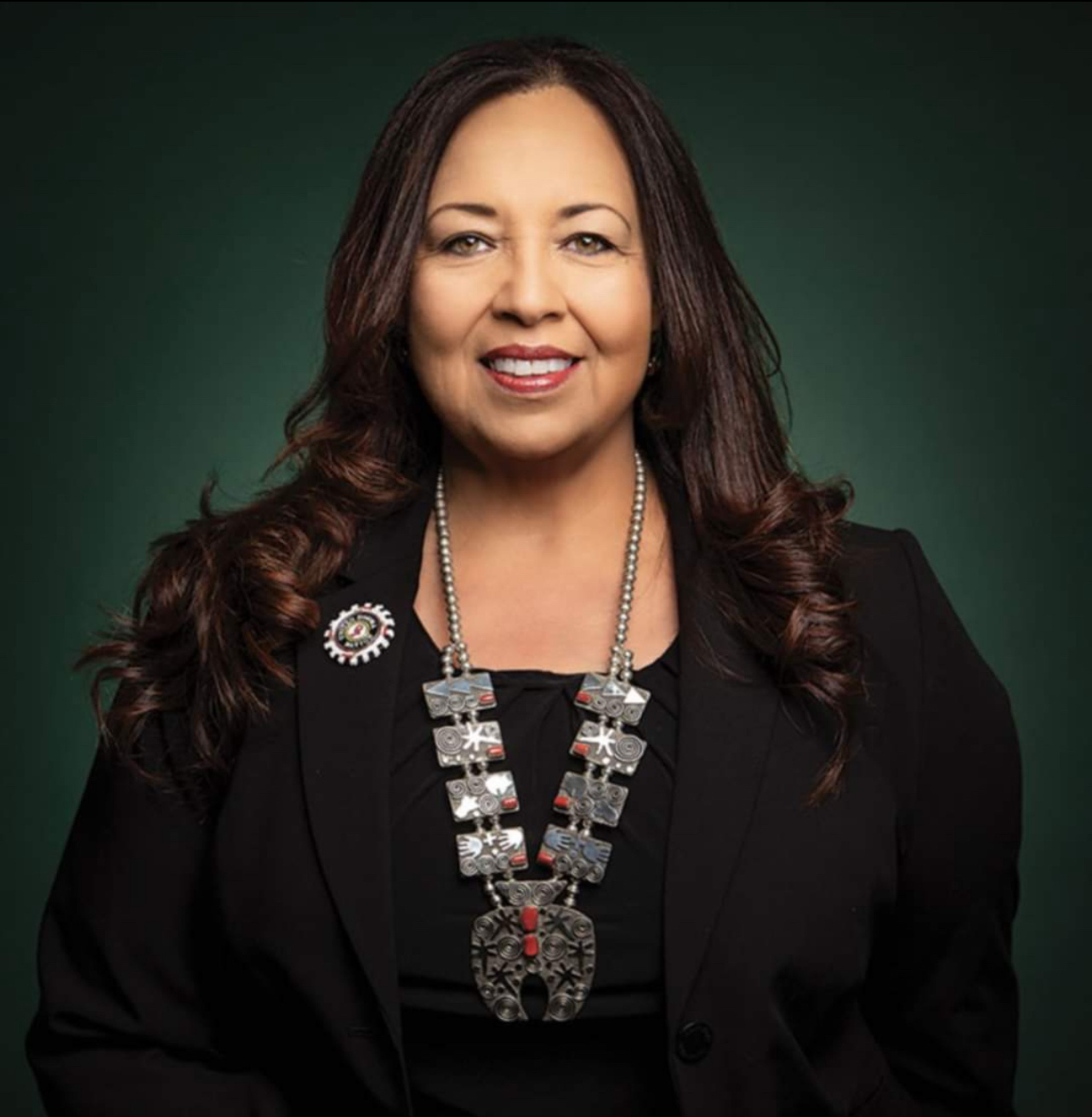
(Photo Credit Cassagne Photography) Chief Lora Ann Chaisson is the Principal Chief of the United Houma Nation (Southeastern Louisiana), and serves as the National Congress of American Indians (NCAI) Alternate Delegate and the Southeast Regional Alternate Vice President to the NCAI Executive Committee. Through her community work, Chief Chaisson has dedicated her life to the cultural preservation, health, and federal recognition for the United Houma Nation. She also enjoys teaching traditional Houma Indian crafts and has been a long-standing exhibitor at the New Orleans Jazz and Heritage Festival.
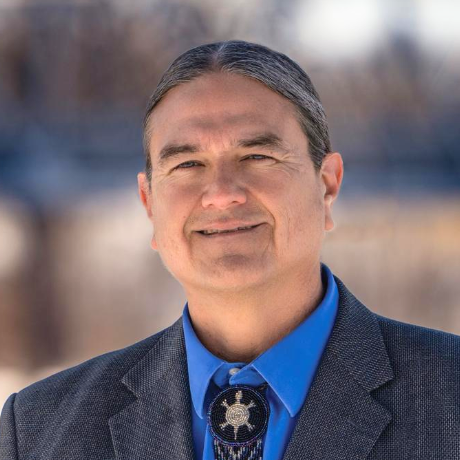
Dr. Donald Warne, MD, PhD is Co-Director of the Johns Hopkins Center for Indigenous Health and Provost Fellow for Indigenous Health Policy at Johns Hopkins University. A member of the Oglala Lakota tribe, he is known for addressing chronic health inequities and advancing Indigenous health education. Previously, Dr. Warne was Associate Dean for Diversity, Equity, and Inclusion at the University of North Dakota, where he developed the first Indigenous health-focused PhD program in the U.S. He has also served as Health Policy Research Director for the Inter-Tribal Council of Arizona and Executive Director of the Great Plains Tribal Chairmen’s Health Board. His contributions to public health have earned him numerous awards, including the American Public Health Association’s Helen Rodríguez-Trías Award for Social Justice.
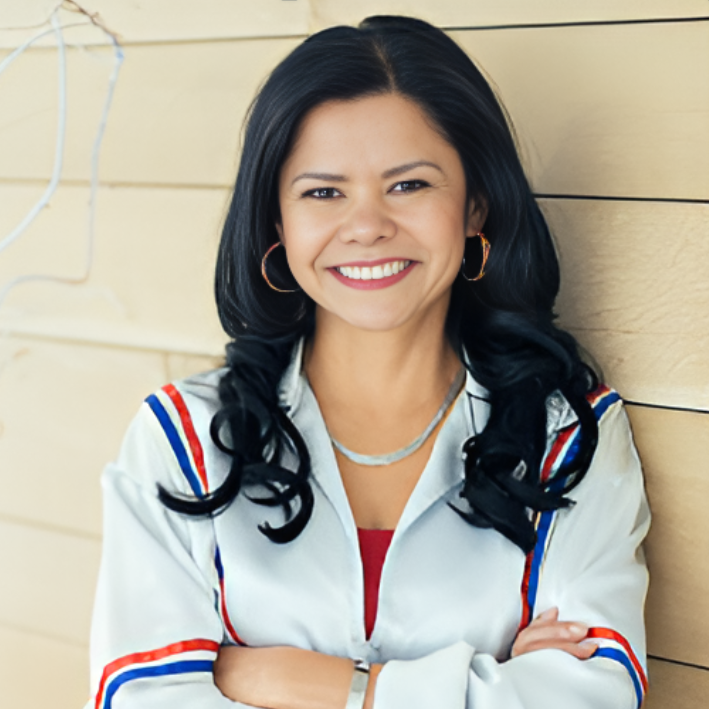
Dr. Jacqueline Ottmann, an Anishinaabe (Saulteaux) scholar from the Fishing Lake First Nation in Saskatchewan, is the President of the First Nations University of Canada. She has held significant academic roles, including Vice-Provost Indigenous Engagement at the University of Saskatchewan and Director of Indigenous Education Initiatives at the University of Calgary. Dr. Ottmann is recognized for her contributions to Indigenous education, leadership, and research, and she is the first Indigenous person to serve as President of the Canadian Society for the Study of Education.
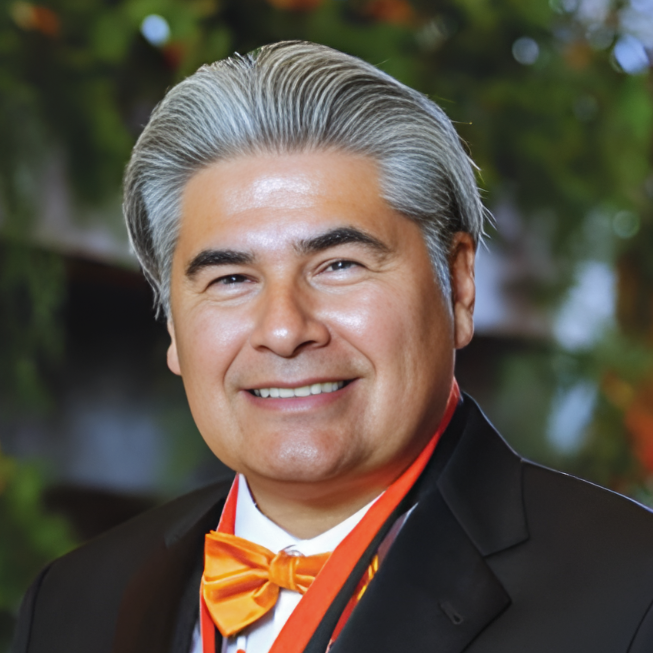
Wilson Pipestem, a citizen of the Otoe-Missouria Tribe and an Osage headright holder, is a prominent advocate for tribal self-determination and Indigenous rights. He is the Managing Partner and co-founder of Ietan Consulting. Wilson holds a J.D. from Stanford University and a bachelor’s degree in English from Oklahoma State University. His legal expertise includes representing tribal governments and organizations on issues such as treaty rights and the protection of Native women. He played a key role in the Violence Against Women Reauthorization Act of 2013, which strengthened tribal courts’ jurisdiction over domestic violence cases. In the healthcare sector, Wilson chairs the Notah Begay III Foundation, which focuses on improving the health and wellness of Native youth. He also serves on the boards of the Nike N7 Fund and the Close Up Foundation, both of which support opportunities for Native communities.
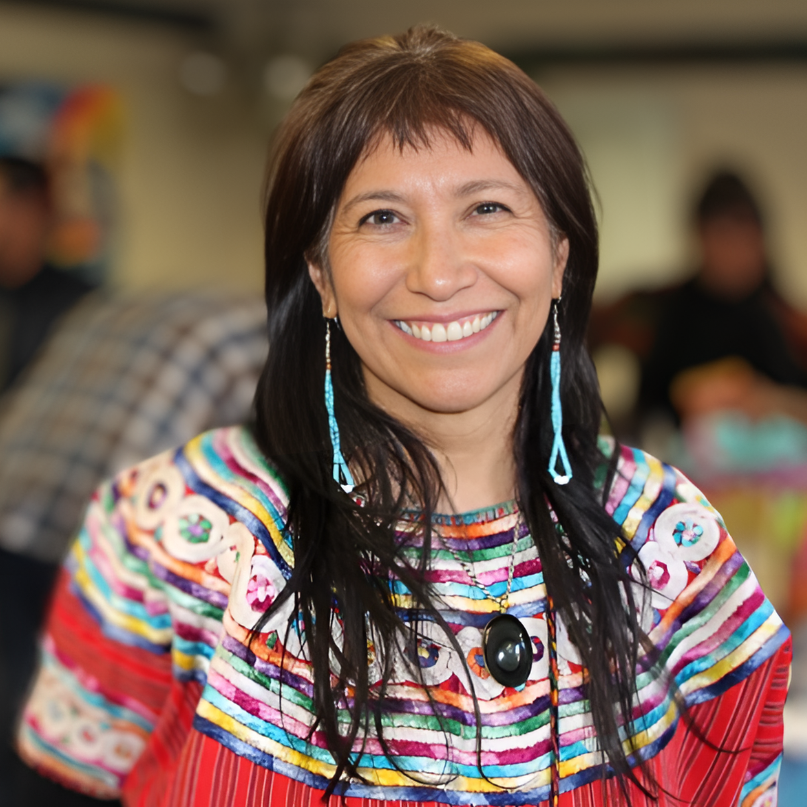
Dr. Patrisia Gonzales, of Kickapoo, Comanche, and Macehual descent, is a distinguished scholar and community health promoter. Her work focuses on Indigenous medicine and healing practices, integrating traditional knowledge with contemporary health systems. Dr. Gonzales is known for her research on Mesoamerican medicinal texts and Indigenous communication practices. She collaborates with Indigenous birth workers and traditional doctors, advocating for the recognition of Indigenous medicine in modern healthcare.
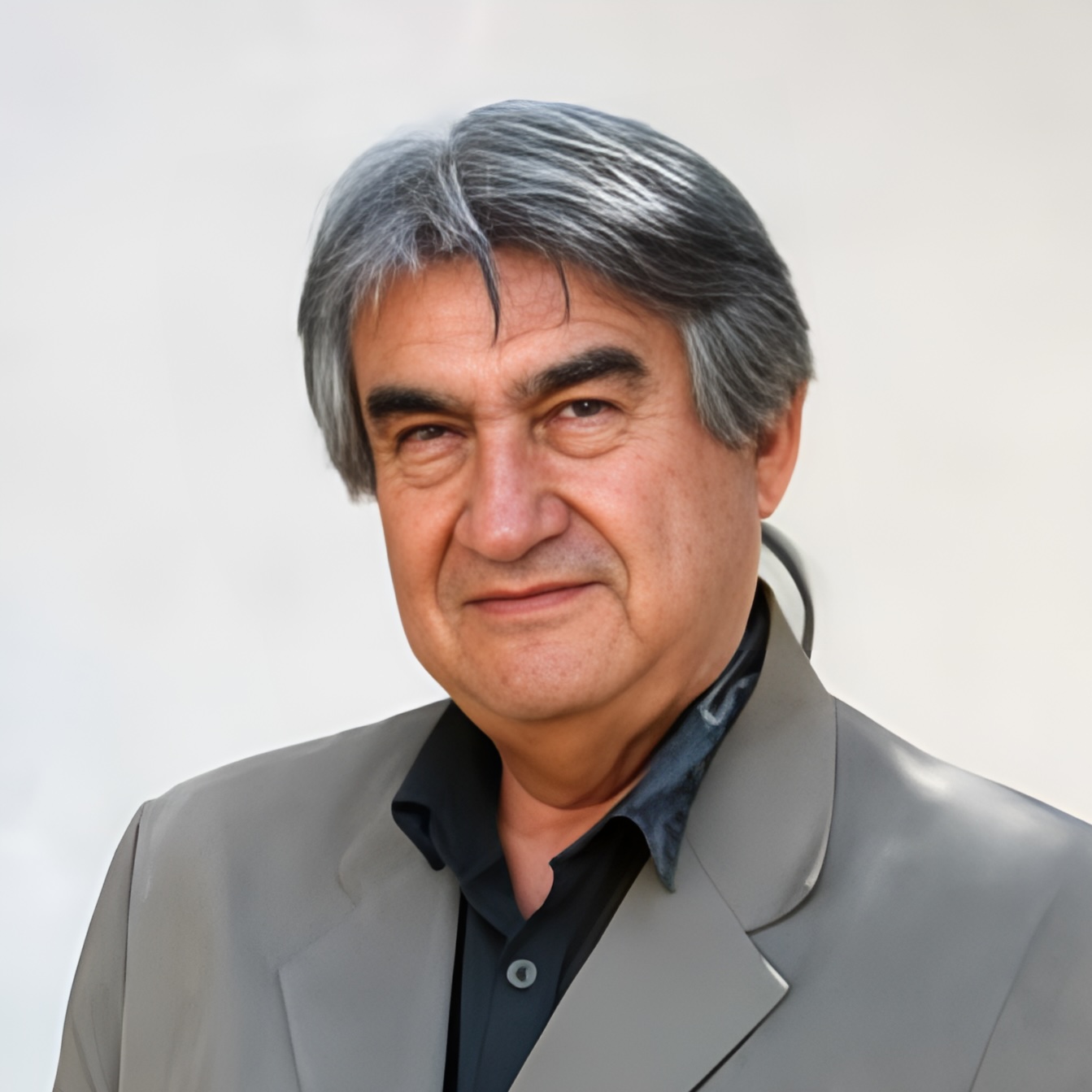
Dr. Greg Cajete, PhD is a Tewa from the Santa Clara Pueblo, New Mexico, and a distinguished educator dedicated to integrating Indigenous knowledge into education. He is the former Director of Native American Studies and an Emeritus Professor at the University of New Mexico. Dr. Cajete has pioneered the reconciliation of Indigenous perspectives with Western academic settings, focusing on culturally-based science and sustainability. He has authored several influential books, including Native Science: Natural Laws of Interdependence and Look to the Mountain: An Ecology of Indigenous Education. Dr. Cajete’s work has been instrumental in promoting Indigenous epistemologies as effective tools for addressing global challenges.
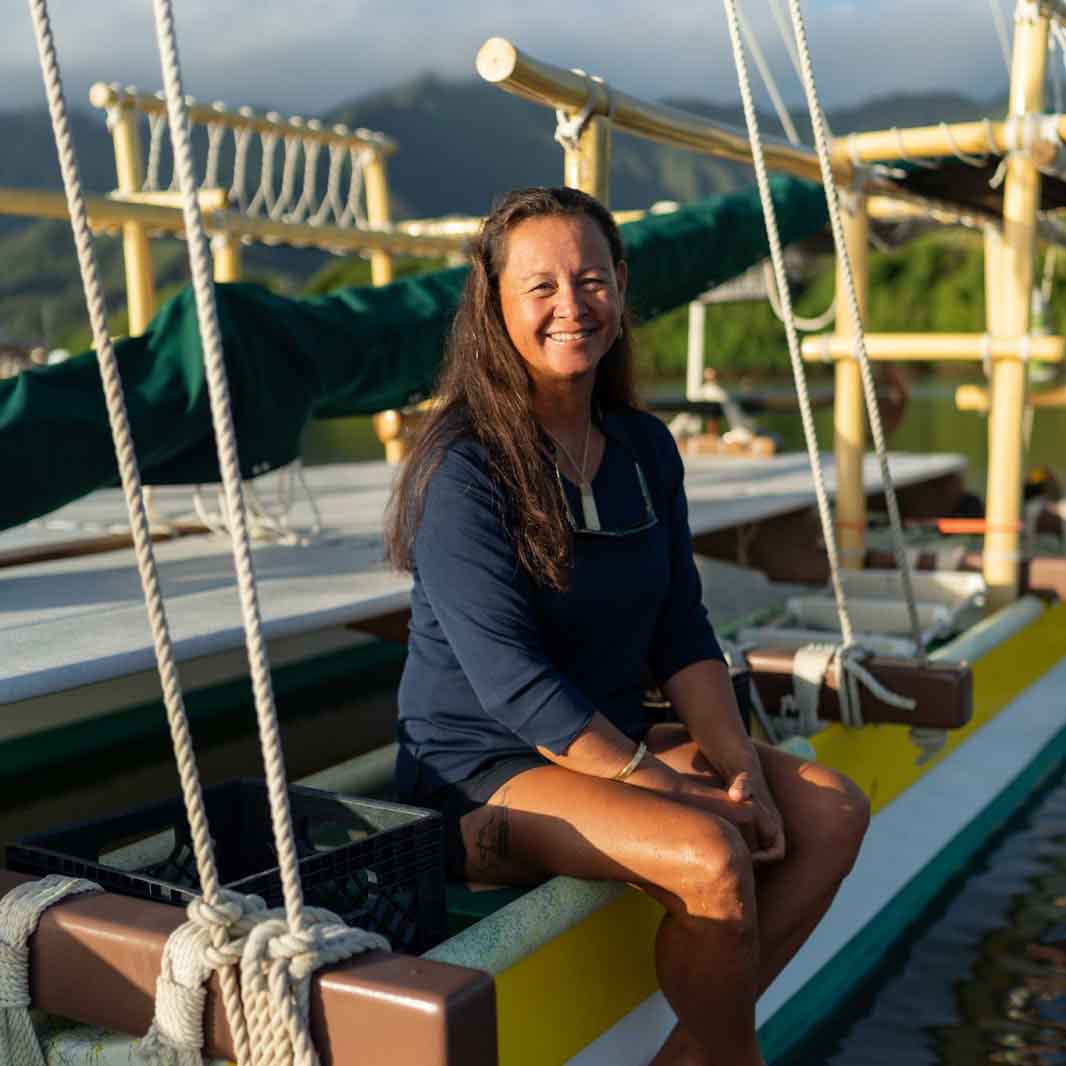
Kumu Bonnie Kahape'a-Tanner is the Founder and Project Director of the Kānehūnāmoku Voyaging Academy, where she educates and inspires the next generation of voyagers through Hawaiian culture and ocean-based learning. With a background in Hawaiian studies, counseling psychology, and transformative learning, Bonnie has dedicated her career to integrating traditional knowledge with modern educational practices, with an unceasing passion to teach future generations the value of integrative Indigenous science. She is also a seasoned sailor, having completed a significant voyage from Hawai‘i to Micronesia under the guidance of master navigator Mau Piailug.
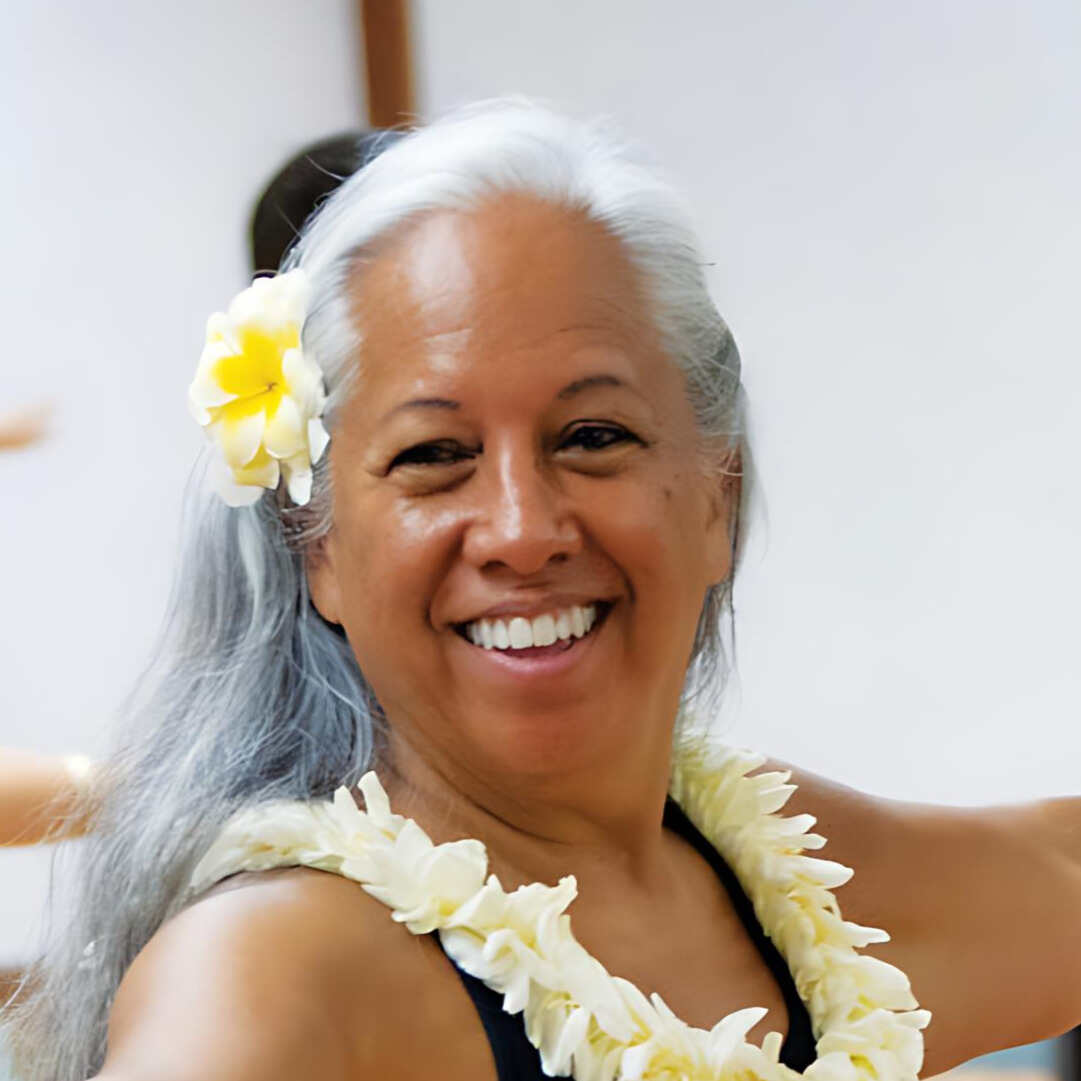
As a kumu hula trained under esteemed kumu hula Maiki Aiu Lake, and as kumu hula of the renown Hālau Mōhala 'Ilimia (Ka'ōhao, Ō'ahu), kumu Mapuana De Silva has spent her career dedicated to revitalizing, celebrating, and cultivating Kanaka Maoli cultural practices including hula. In recent years, her expertise led her to partnering with several University of Hawai'i health scientists to leading groundbreaking studies such as the KāHOLO Project which highlight the health benefits of dancing hula as a culturally grounded intervention for Native Hawaiians. As a preeminant cultural practitioner and published health scientist, kumu Mapuana De Silva continues to be dedicated to teaching the future generations to value, learn, and be healthy through their Indigenous identities.
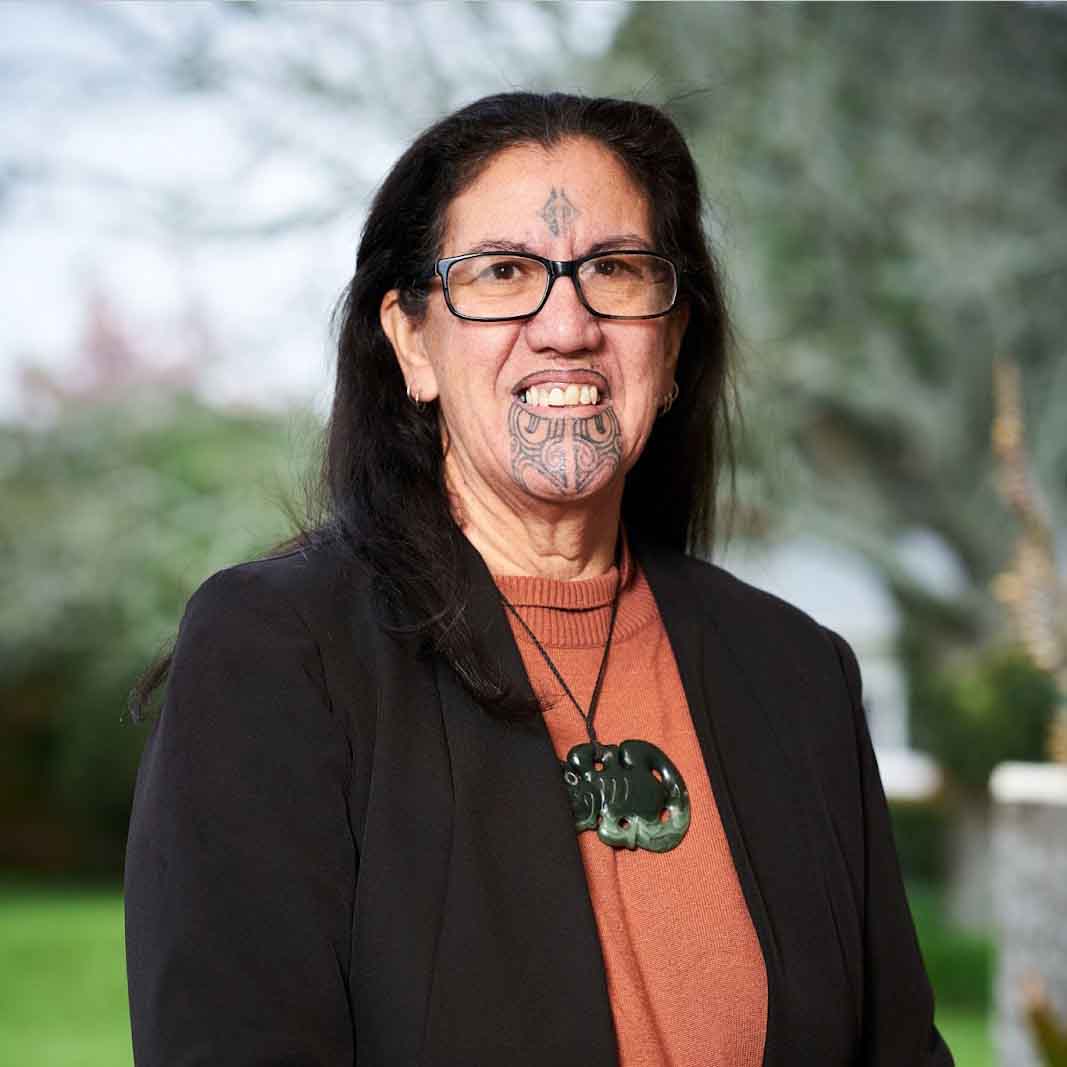
Leonie Pihama is a mother of six and a grandmother of six. She is Professor of Māori and Indigenous Research and Research Director at Tū Tama Wāhine o Taranaki. Leonie was a recipient of the Hohua Tūtengaehe Post-Doctoral Research Fellowship (Health Research Council) and the inaugural Ngā Pae o Te Maramatanga Senior Māori Fulbright Award. Leonie was awarded ‘Te Tohu Pae Tawhiti Award’ (NZARE) for excellence in Māori Educational Research and ‘Te Tohu Rapuora Award (HRC) to recognise significant contribution to Māori health excellence and leadership. Leonie was Director of The International Research Institute for Māori and Indigenous Education (IRI, Auckland) and Te Kotahi Research Institute (Waikato). She served on the Māori Health Commitee for the Health Research council and on a number of key boards including Māori Television, Te Mangai Pāho,and Ngā Pae o te Māramatanga. Leonie is a Fellow of the Royal Society of New Zealand.
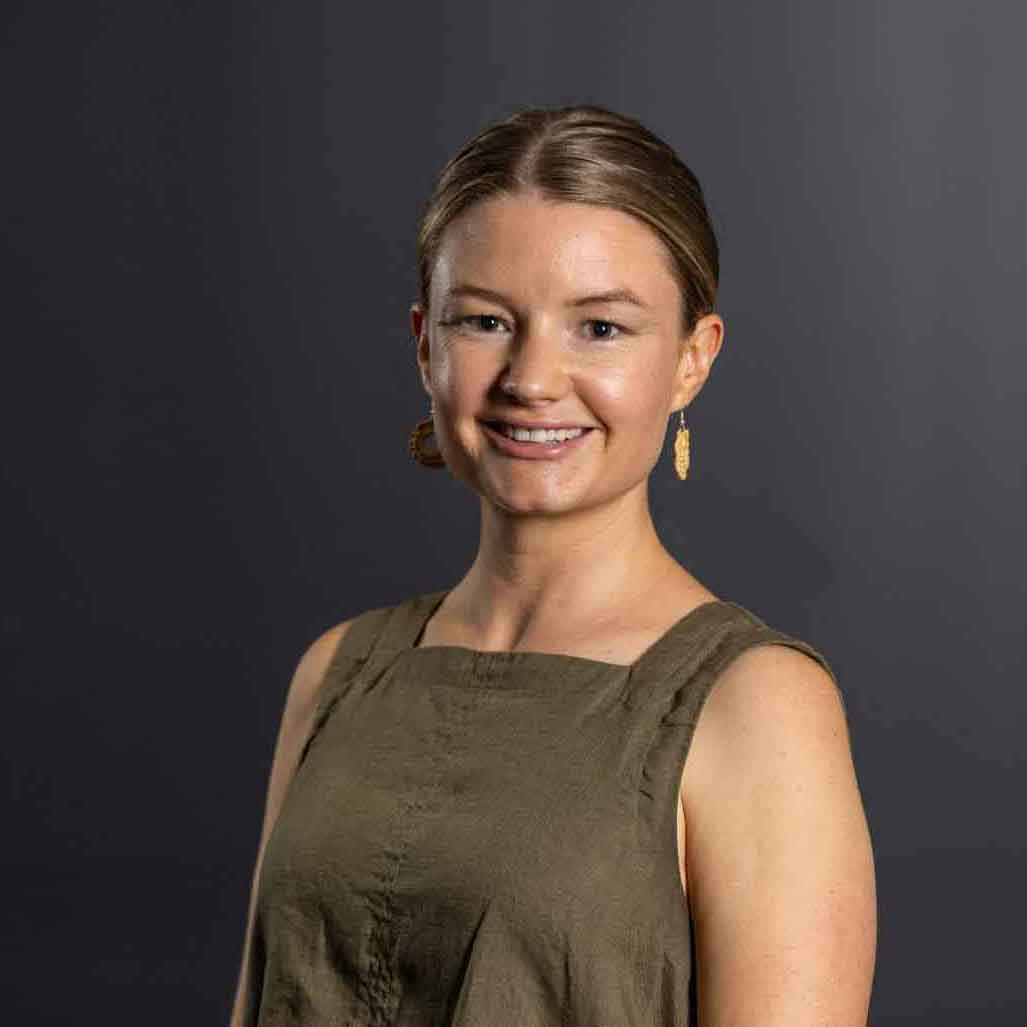
Dr. Tameka McFadyen is a proud Wonarua and Kamilaroi descendant from the East coast of the land now known as Australia. As an early career academic with Thurru – the Indigenous Health Unit at the University of Newcastle, Australia, Tameka is dedicated to advancing Indigenous health education and the intersection of implementation science and health equity. Working towards changing how knowledge is recognised within the higher education setting by ensuring Indigenous communities voices are heard within curriculum and research. While growing equitable preventive health focused implementation science evidence in community settings. As a part of the Thurru team Tameka’s work is instrumental in fostering a deeper understanding of Aboriginal health among future healthcare professionals through the mix of traditional and digital learnings. Tameka believes, when we get Aboriginal health right, we get health right for everyone.
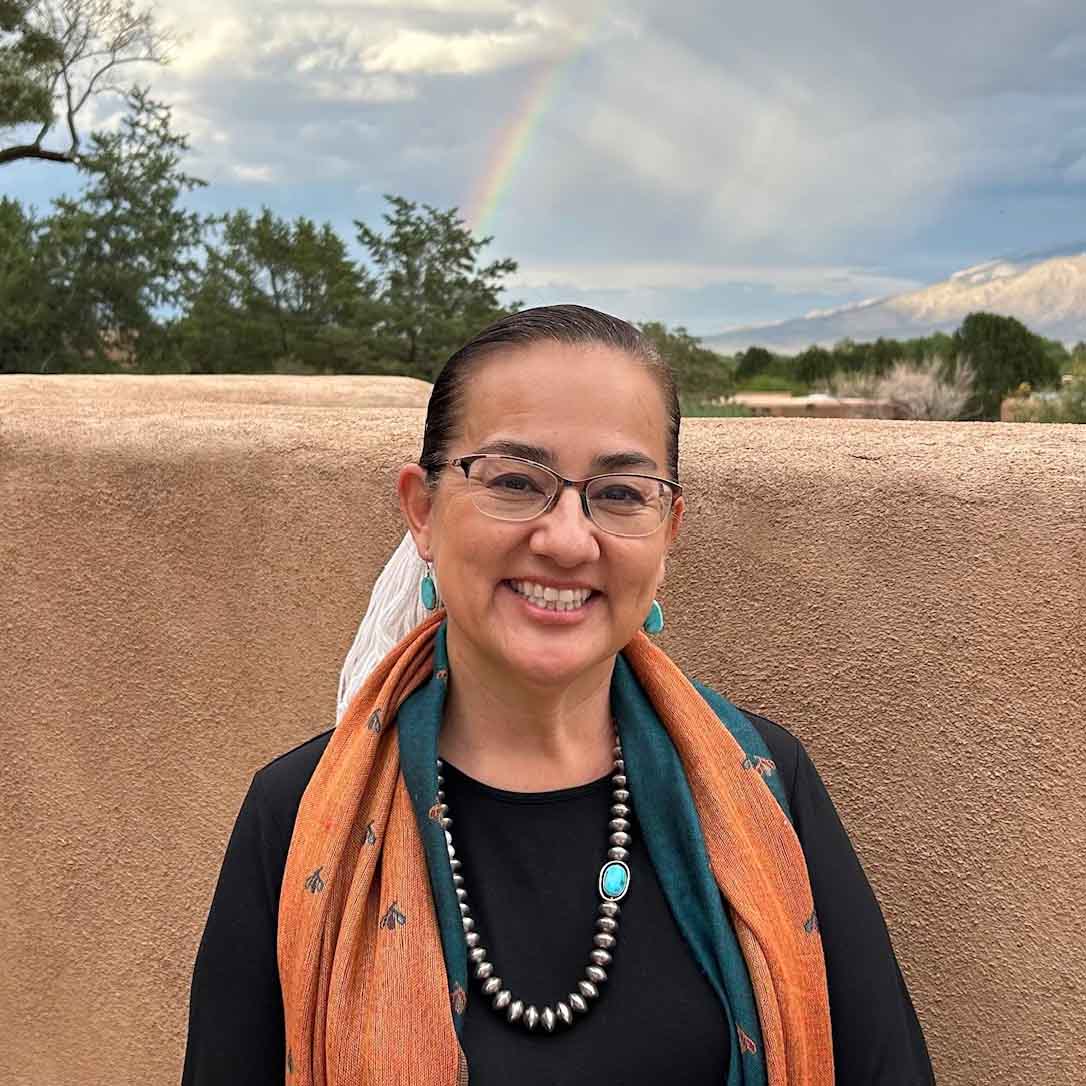
Chenoa Bah is from Tseyaat’ó, New Mexico, from the Diné (Navajo) Nation. She has worked in public health extensively in community based, tribal, and clinical settings. She attained her PhD in Health and Cultural Communication focused on the lived experiences of Diné community members with diabetes. She has taught for over 17 years at UNM (University of New Mexico), IAIA (Institute of American Indian Arts) and CNM (Central New Mexico Community College). She presently teaches in the Pre-Health Scholars Certificate program at UNM Health Sciences Center. Her experiences range from pediatric and school-based health center provider training to facilitating cultural wellness groups for youth, individuals in recovery to community health engagement. She co-founded a local Indigenous based charter school, known as NACA (Native American Community Academy) and worked together with families to create a Wellness Model and curriculum for student and family well-being. She is an active member of the Southwest Indigenous Housing Justice Collaborative supporting the access, resources and partnerships for unsheltered relatives and addressing MMIR for housing as a human right and safety. As a cultural advocate, wife and a mother, Chenoa Bah, advocates for the importance of Indigenized health promotion, food sovereignty and actively cultivates traditional lifeways and languages with youth and families.
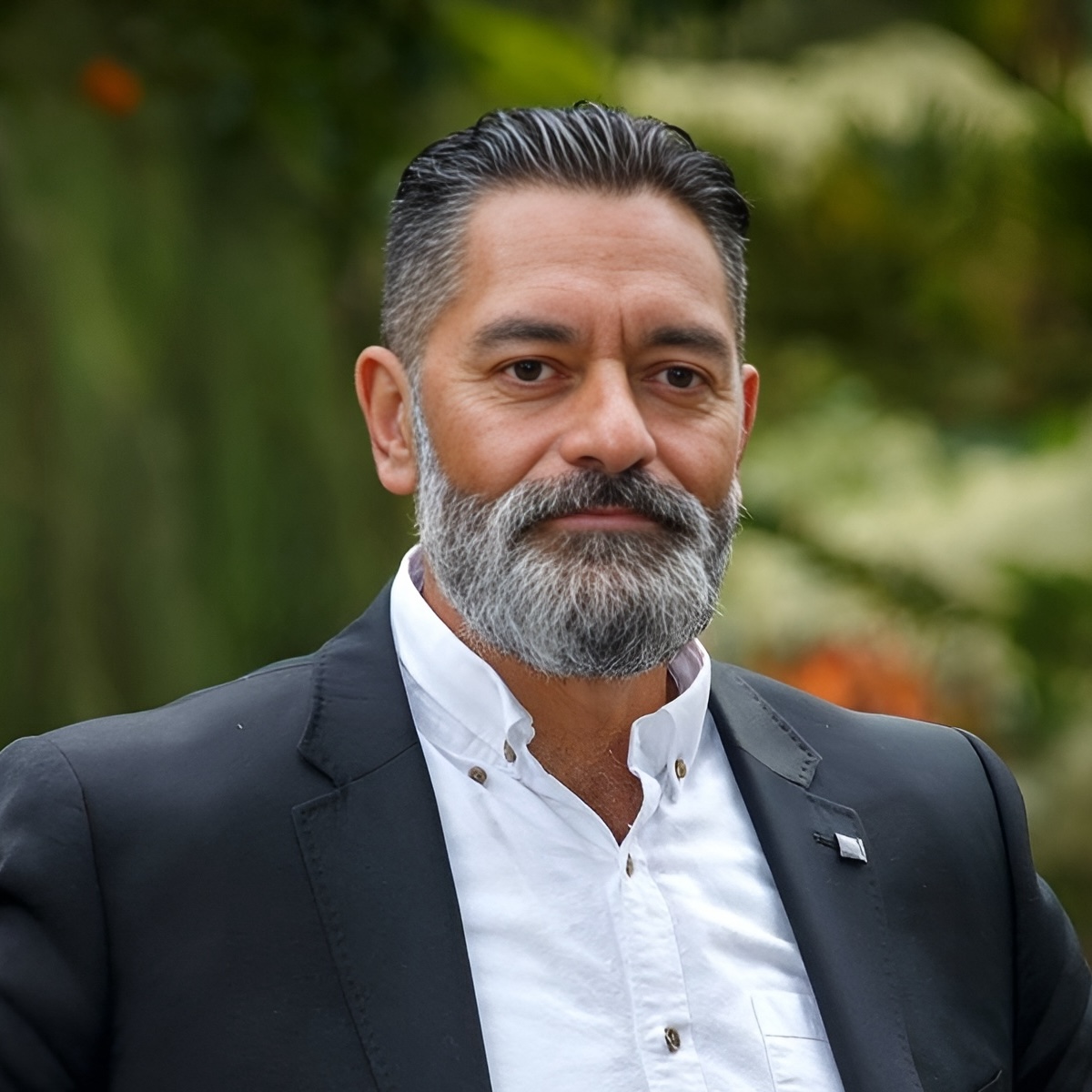
Professor Meihana Durie is a descendent of the Rangitāne, Ngāti Kauwhata, Ngāti Raukawa and Ngāti Rangatahi iwi (tribes) on his father’s side, and a descendent of the Ngāti Porou, Rongo Whakaata and Ngāi Tahu iwi on his mother’s side. He is an advocate of kaupapa and mātauranga-driven Māori educational pathways that are reflective of kaupapa Māori priorities. He was recently appointed CEO of Te Wānanga o Raukawa, a tribal (iwi) university in Aotearoa. He was previously Deputy Vice Chancellor Māori at Massey University from 2020 to 2024 and prior to that was Head of School of Te Pūtahi a Toi (School of Māori Knowledge) at Massey University. Meihana has a research background in Māori Health and Wellbeing and is a previous Health Research Council of New Zealand Postdoctoral Fellow (Hohua Tutengaehe Fellowship) and was the inaugural Sir Peter Snell Doctoral Scholar in Public Health and Exercise Science. In the mid 2000’s he helped establish the Ngā Purapura Centre for Māori Wellbeing at Te Wānanga o Raukawa, alongside new bachelor degree qualifications in Māori Health and Wellbeing. Professor Durie speaks to audiences locally, nationally and internationally about particular dimensions of Tikanga Māori (culture) and Mātauranga Māori (ancestral wisdom and knowledge) that can have a transformative and transcendent impact upon Māori Wellbeing including whānau (families) and hāpori (communities). He was a panellist for the Tākiri Tū Te Ora Workshop at last year’s Hui aa Motu hosted by the Kīngitanga and helped bring forward the ‘Te Pene Raupatu’ submission on behalf of his iwi of Ngāti Kauwhata as a part of the Waitangi Tribunal Porirua ki Manawatū Inquiry. He is one of four Pou Tikanga (Cultural Experts) for the Waitangi Tribunal Constitutional Inquiry & carries a number of leadership roles for his iwi of Ngāti Kauwhata and Rangitāne. In his time at Massey University, Meihana his team of staff helped usher in Massey University’s Te Tiriti-led endeavours, which comprised a number of university-wide Te Tiriti research, educational and leadership initiatives whilst also strengthening Māori strategic leadership and development across the university. Meihana also engages alongside other iwi and hapū members in matters that affect his people of Rangitāne and Ngāti Kauwhata and comments regularly on political issues that affect iwi and Māori more broadly. His wife Ilane, is from the Te Aitanga a Hauiti of Uawa-nui-a-Ruamatua and their tamariki and mokopuna are raukura (graduates) and present tauira (students) of the Kohanga Reo, Kura Kaupapa Māori (Mana Tamariki) and Kura Māori (MANUKURA) movements.
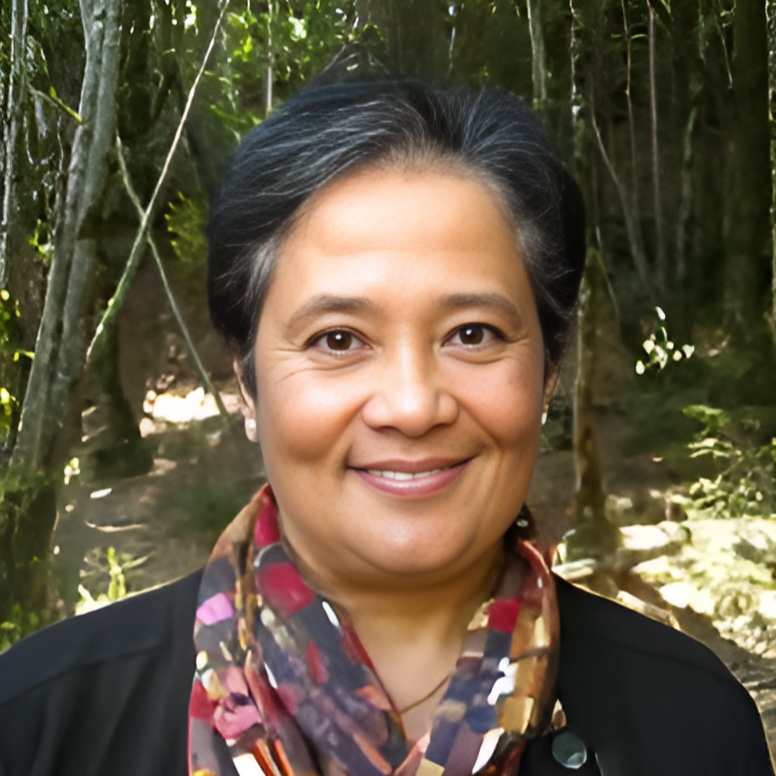
Bonnie Duran has over 45 years of experience in public health practice, education, and research, working with Native Americans and other communities of color. In the past 25 years, she has worked in partnership with Tribal and Urban Native communities to conduct NIH-funded primary and secondary analysis studies of mental disorder prevalence, victimization, and treatment-seeking/ barriers to care. Another aspect of her empirical work is the development of indigenous theory and Community-Based Participatory Research (CBPR) methods. For the past two decades, she has worked closely with the American Indian Higher Education Consortium and Tribal College faculty, staff, and students in epidemiologic and intervention studies to enhance college success. Her overall goals are to work with communities to design treatment and prevention efforts that are effective, culture-centered, empowering, sustainable, and that have maximum public health impact. In the highly cited co-authored book Native American Postcolonial Psychology, she helped articulate and disseminate the “Historical Trauma” theory, which is highly used among tribal, urban Indian health, and other historically marginalized groups and social program providers. The NIH Tribal Consultation Advisory Committee recently identified that theoretical approach as a critical element of AIAN culturally appropriate research. Bonnie has practiced the Dharma and Mindfulness meditation since 1980. She teaches long and short meditation retreats at the Insight Meditation Society, Spirit Rock Meditation Center, and other Dharma communities. She is also involved in Native American spiritual practices and traditions. Dr. Duran is a professor emeritus in the Schools of Social Work and Public Health at the University of Washington and a faculty member at the Indigenous Wellness Research Institute.
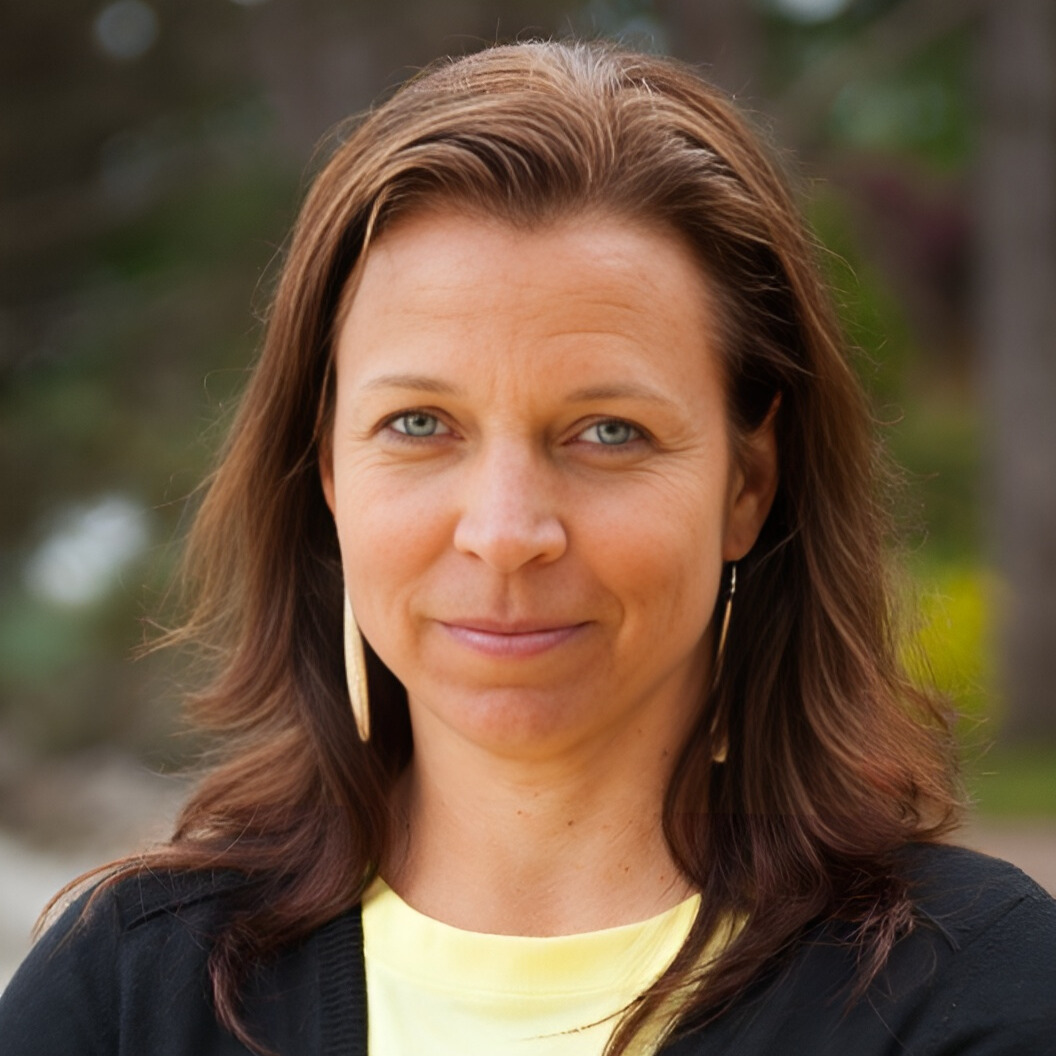
Dr. Karina L. Walters became director of the Tribal Health Research Office (THRO) at the U.S. National Institutes of Health (NIH) in April 2023. In this role, Dr. Walters works to advance initiatives to ensure Tribally informed biomedical and behavioral research, enhance NIH’s Tribal Consultation and Tribal engagement efforts, and coordinate American Indian and Alaska Native (AI/AN) research and research-related activities across NIH and with other federal entities. She is deeply committed to engaging Tribal leadership in health research efforts. A social epidemiology and health prevention scholar, Dr. Walters has more than 28 years of AI/AN health research experience, encompassing foundational science, disease prevention, health promotion, and intervention research. She has conducted social epidemiological research on the environmental, historical, social, and cultural determinants of health and health equity in AI/AN communities as well as designed and empirically tested Tribally derived chronic disease prevention interventions. Much of her early social epidemiological research involved LGBT, Two Spirit, and urban AI/AN populations across the United States. Additionally, Dr. Walters has conducted Tribal-based intervention research in the areas of substance use disorders, obesity prevention and physical activity promotion, diabetes and depression, and HIV prevention. She has served as an NIH principal investigator or co-investigator on 35 NIH awards. Prior to NIH, Dr. Walters was a tenured full professor and the Katherine Hall Chambers Scholar at the University of Washington (UW) School of Social Work. She also served as an adjunct professor in the Department of Global Health and the School of Public Health and is the founding director of the UW Indigenous Wellness Research Institute. From 2012-2019, she was Associate Dean for Research at the UW School of Social Work. Dr. Walters is the first American Indian fellow inducted into the American Academy of Social Welfare and Social Work. She earned a bachelor’s degree in sociology from the University of California, Los Angeles (UCLA) and an M.S.W. and a Ph.D. in social welfare, also from UCLA.
•
12 hours•
59 minutesJoin Email List
INIHKDRegistrar@uw.edu
|
Website & Branding by SMST Corp.© 2024 INIHKD. All rights reserved.